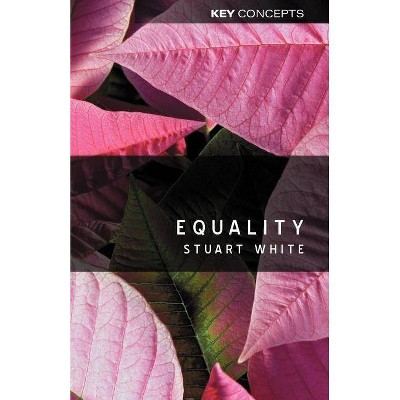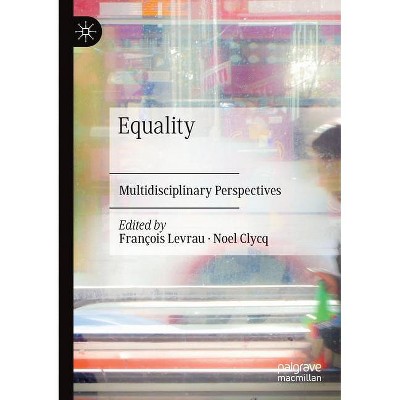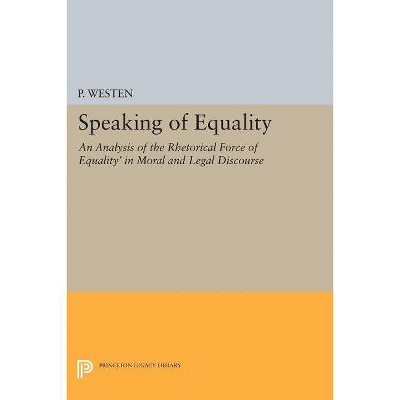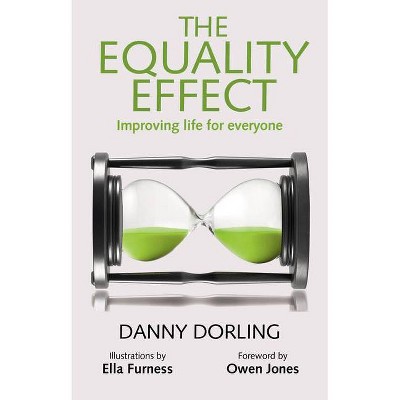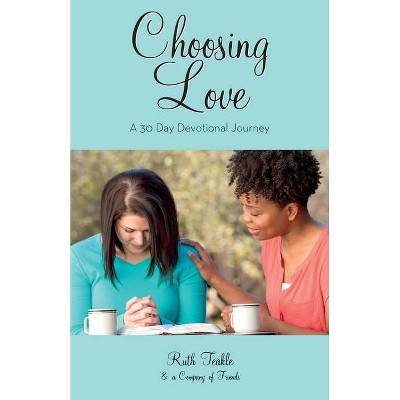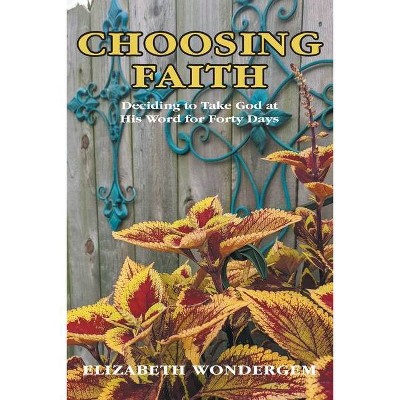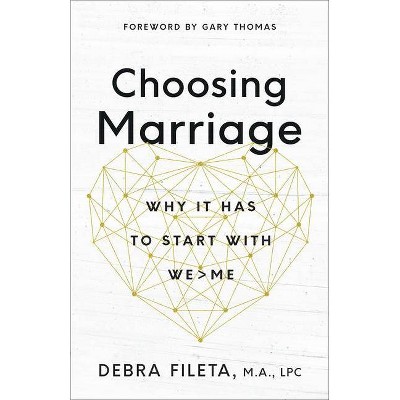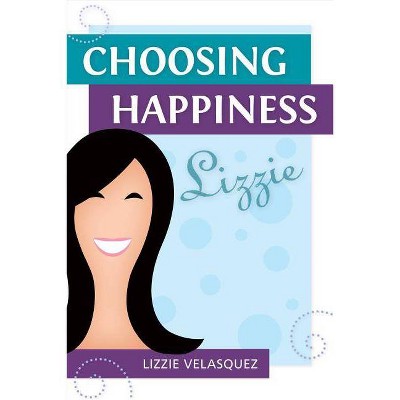Choosing Equality - by Joseph Viteritti (Paperback)
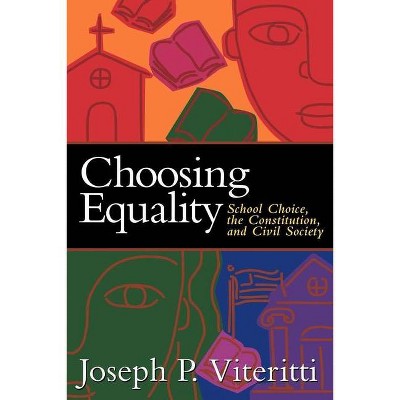
Similar Products
Products of same category from the store
AllProduct info
<p/><br></br><p><b> About the Book </b></p></br></br>Using the school-choice systems in Milwaukee and Cleaveland as a basis, author Joseph P. Viteritti reviews a variety of policy initiatives enacted to promote educational opportunity and finds that the nation has fallen short of providing decent schooling for its most disadvantaged children, and in so doing has delayed the movement toward social and political equality.<p/><br></br><p><b> Book Synopsis </b></p></br></br>America is now in the second generation of debate on school choice. The first was prompted by the provocative voucher proposal conceived by Milton Friedman in 1955 and brought into the mainstream by Chubb and Moe's seminal book Politics, Markets, and American Schools (Brookings, 1990). It introduced a pure market model in which schools would be publicly financed but privately operated. While opponents continue to contend that choice will lead to the demise of public education, the weakening of civil society, and the fostering of separate and unequal systems of education, Joseph P. Viteritti argues that these long-held assertions must give way to present realities. The rich and diverse experience we have had with magnet schools, controlled choice, inter-district choice, charter schools, privately funded vouchers, and public vouchers in Milwaukee and Cleveland provides a solid basis for crafting a choice policy that enhances the educational opportunities of children whose needs are not being met by the present system of public education. Drawing on his background as a political scientist, legal scholar, and education practitioner, Viteritti starts his book with the promise articulated in the landmark Brown decision of 1954. After reviewing a variety of policy initiatives enacted to promote educational opportunity, he finds that the nation has fallen short of providing decent schooling for its most disadvantaged children, and in so doing has delayed the movement toward social and political equality. Viteritti does not contend that choice in the form of charter schools or vouchers for the poor is a solution to racial inequality, but he believes that these forms of choice can move the country in the proper direction. He insists that the nation cannot pretend to have a serious commitment to the goal of educational equality as long as choice is available only to those with the private means to afford it. Acknowledging the serious legal and civic concerns registered by choice opponents, Viteritti turns their arguments on their heads. He proposes that providing poor people with public support to attend religious schools is consistent with the pluralist constitutional model envisioned by Madison and the practices common to contemporary democratic societies. He explains how denying choice to the poor undermines the redistributive social agenda of the modern liberal state, and how a strict standard of church-state separation is out of touch with the culture of poor minority communities where the church is the most viable institution for social progress. Viteritti warns that by failing to appreciate the crucial role that religious congregations play in inner-city neighborhoods, liberal social analysts have compromised the civic vitality of poor communities. He also admonishes conservatives to abandon the pure market approach to education reform in favor of a choice policy designed specifically to benefit the poor. He concludes that choice merits support from all sides of the political spectrum, because a sound education is an essential foundation for any policy strategy designed to promote a healthy democratic society.<p/><br></br><p><b> Review Quotes </b></p></br></br><br><P>."..a compelling cry for meaningful school choice. " --Richard W. Garnett, Assistant Professor of Law, Notre Dame<br><br><P>."..a thought-provoking and essential book. " --Alan Wolfe, Director, Center for Religion and American Public Life<br><br><P>."..a truly important work of research and scholarship. " --John E. Chubb, Coauthor of Politics, Markets, and America's Schools<br><br><P>."..both sensible and sensitive.... " --Daniel McGroarty, Philanthropy, "Philanthropy"<br><br><P>."..is as original and invigorating as it is scholarly.... " --Cape Outlook, "Council for American Private Education"<br><br><P>."..presents a strong case for school choice schemes aimed at low income families. " --Stephen D. Sugarman, Teacher's College Record, "Teacher's College Record"<br><br><P>."..provides a rigorous, systematic, and comprehensive case for school choice...an invaluable chronicle. " --Mark Gerson, The Public Interest, "The Public Interest"<br><br><P>."..shows an impressive mastery of the literature and statistics that have grown up around the issue of school choice. [Viteritti] addresses fully and fairly almost every question that arises in this debate. " --James J. Higgins, Liguorian, "Liguorian"<br><br><P>."..wisely gives short shift to the byzantine methodological distinctions made by researchers and, instead, focuses on the normative questions... argues that 'education policy must be designed to benefit the most disadvantaged members of society--those who are under-served by the current system.'" --American Political Science Review, "American Political Science Review", 3/7/2001<br><br><P>"[Viteritti] provides a promising proposal for improving the education of students from lower socioeconomic backgrounds." --Brian P. Marron, University of Maryland School of Law, 4/1/2001<br><br><P>"A compelling cry for meaningful school choice." --The Weekly Standard, "The Weekly Standard"<br><br><P>"An intellectual tour de force and a must read for all sides in the school choice debate. " --School Reform News, "School Reform News"<br><br><P>"Those who are looking for school alternatives, those who are attempting to provide school alternatives and those who are attempting to keep public education alive will find this book informative, practical and frightening in that order! " --Education Review, "Education Review"<br><br><P>"Viteritti...presents a case for school choice designed to appeal to liberals and conservatives alike. " --Cristopher Rapp, National Review, "National Review"<br><p/><br></br><p><b> About the Author </b></p></br></br><P>Joseph P. Viteritti is the Blanche D. Blank Professor of Public Policy at Hunter College, CUNY. He previously served as special assistant to the chancellor of schools in NewYork and as senior adviser to superintendents in Boston and Chicago. He has written widely on education policy and governance and recently served as executive director of the Commission on School Governance in NewYork, for which these papers were commissioned.
Price History
Price Archive shows prices from various stores, lets you see history and find the cheapest. There is no actual sale on the website. For all support, inquiry and suggestion messages communication@pricearchive.us
